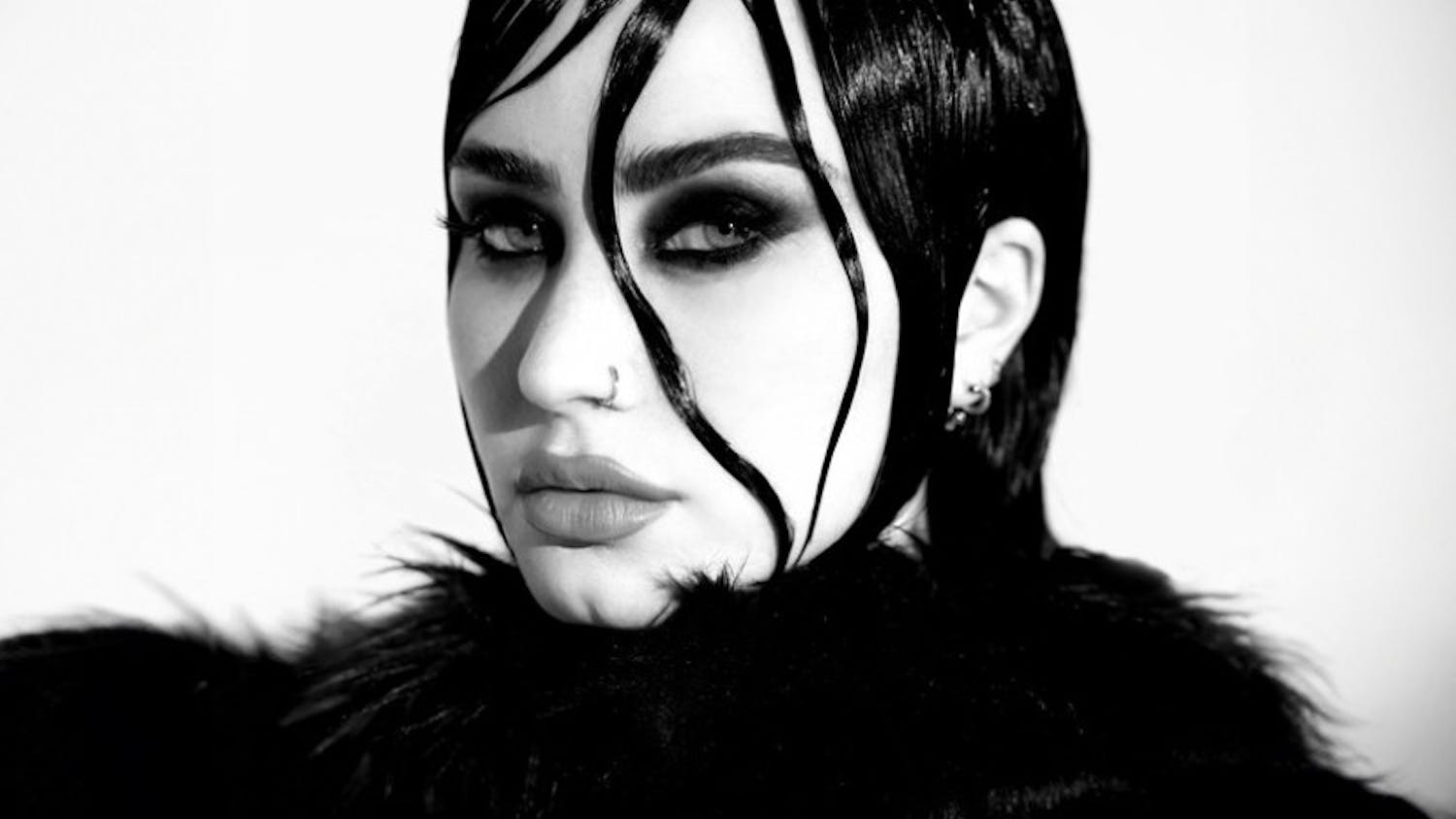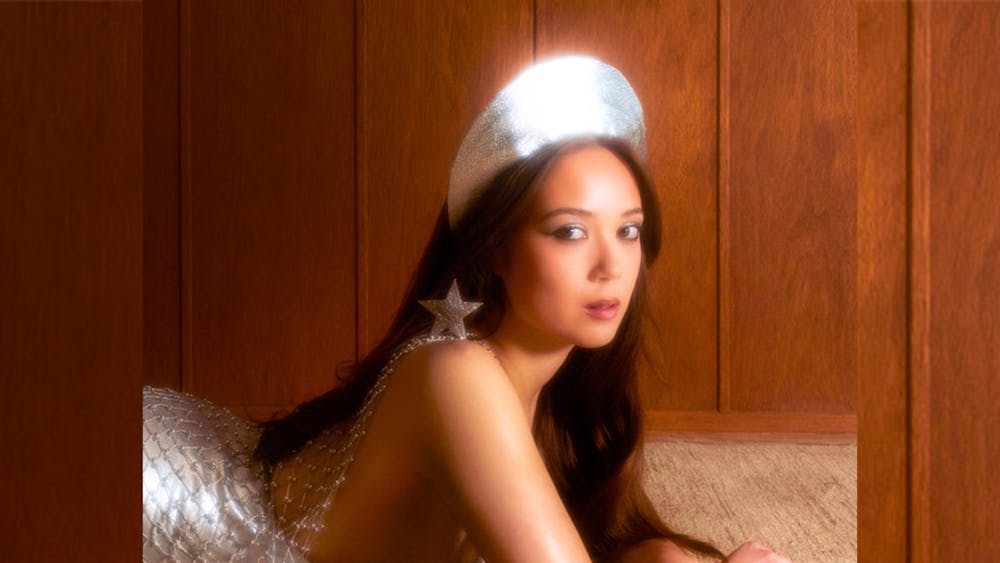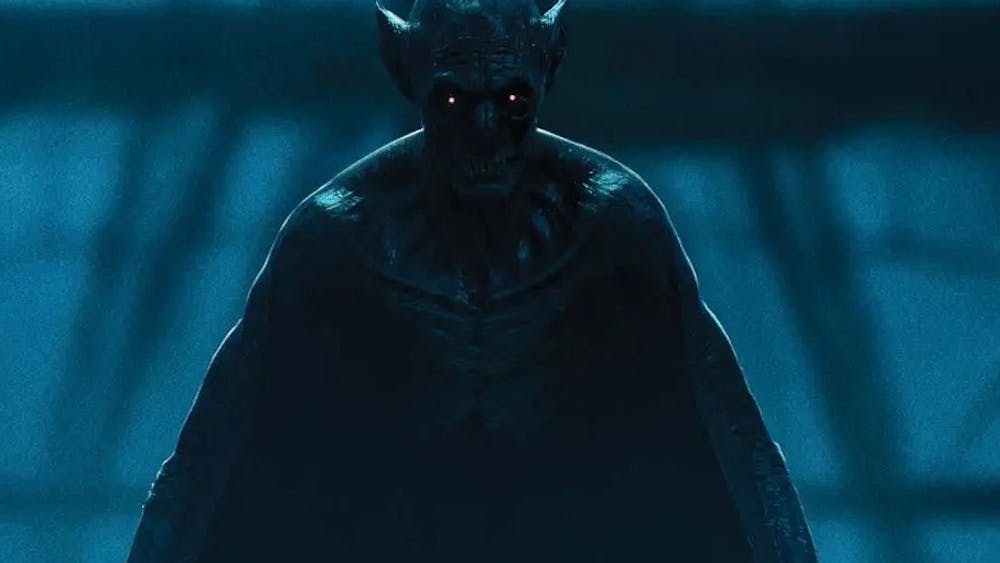Jazz -- the unbridled interpretation of emotion through music, invented by former slaves who applied African rhythms to European musical traditions -- is the only purely American art form.\nWednesday night, Jazz from Bloomington, the city's jazz society, brought a few of its practitioners, the Barber Brothers Quintet and the Christian McBride Band, to the Buskirk-Chumley Theatre, 114 E. Kirkwood Ave.\nFirst onstage was the Barber Brothers Quintet, fronted by twins Rahsaan and Roland on tenor saxophone and trombone, respectively. Performing in front of a raucous crowd of more than 400, the brothers, juniors in the School of Music, turned up the heat for their hometown audience with their brand of neoclassical jazz.\nThe highlight of their set was "Second Song for Holly," a tune composed for a girlfriend. At the beginning, Rahsaan mellows out his saxophone, playing it loving tender, yet dripping with a sexual undertone. When his brother on the trombone comes in, it sounds like the usual ending, but one slowly realizes it's turning into something else. With the song, this raging duet effectively represented the overpowering nature of love -- one's completely lost in the longing, the need, the want for the woman one loves. The beat thumps you right in the heart. Nothing is more emotional than a man in love, and the brothers' music lets us in on it.\nAfter that rousing warm-up, the Christian McBride Band took the stage, fronted by McBride, a talent on bass often compared to the legendary Charles Mingus.\n"If people really knew the qualification of a good bass player, they would flip -- because I know thirty or forty bass players who have the technique I have," wrote Mingus in the linear notes to "Let My Children Hear Music." "Whether or not they are as inventive is something else because when you study the instrument, it calls for a technique that jazz has not even begun to express yet. \n"The full-developed bass player masters harmonics -- I don't mean just scraping the bow across and making squeak sounds, I mean he can play compositions in harmonics." \nHe would be proud to know the expression he worked for is coming to jazz in the persona of McBride.\nMcBride started out sowing the seeds of what was to come by laying down his roots with a cover of "I'm Coming Home" by The Spinners, a lighter, free-flowing, praise the Lord, feel-good-in-a-funky way type of jazz. \nThink of Kenny G at church with some actual soul in him.\nOf course, over the next few songs, McBride couldn't resist straying from the traditional bassist's role and proved why a bassist could be a frontman. In solos, he played the stand-up bass like the strings were on fire, not slowing down to let his fingers get burned.\nAfter a few songs, he was through with the stand-up and picked up the electric for some real "compositions in harmonics."\nDuring the beginning of the band's cover of Police's "Walking on the Moon," McBride pushed the envelope on the electric bass sound, playing with slow deliberate plinks producing wah-wah aftertastes.\nBut on "Science Fiction," a song inspired by "The Matrix" and the title track on his newest compact disc, he demonstrated a vision of jazz that puts McBride in the same breath with Mingus. He started with a solo on a dark, echoing bass sound, the notes reverberating with each other, seemingly playing a note because its echo would resound with an upcoming note, playing one song within another, with purpose of losing the listener into the foreboding sounds of technology.\nThen, he snapped into the familiar quartet sound with the traditional bass line -- the style we all know.\nHis real genius became apparent when he fused the dark bass into the familiar, mixing the new sound into the old, bringing about a show-stopping audience roar.\nChristian McBride can be the future of jazz.
McBride adds signature to neoclassical jazz
Get stories like this in your inbox
Subscribe





